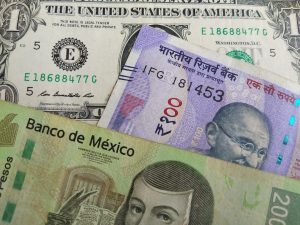Forex trading, also known as foreign currency trading, is one of the largest financial markets in the world. It is a decentralized market that operates 24 hours a day, five days a week. Forex trading involves buying and selling different currencies from around the world, with the aim of making a profit from the difference in exchange rates. The United States is one of the largest markets for forex trading, and there are several acts that control forex in the country. In this article, we will discuss these acts and their impact on the forex market.
The Commodity Exchange Act (CEA)
The Commodity Exchange Act (CEA) is a federal law that regulates the trading of commodities and futures contracts in the United States. The CEA was first enacted in 1936 and has been amended several times since then. The CEA provides the regulatory framework for the Commodity Futures Trading Commission (CFTC), which is responsible for overseeing the futures and options markets, including the forex market.
The CEA requires all forex brokers operating in the United States to register with the CFTC and become members of the National Futures Association (NFA). The NFA is a self-regulatory organization that regulates the activities of its members, including forex brokers. The NFA has set strict rules and regulations that forex brokers must adhere to, including minimum capital requirements, segregation of client funds, and reporting requirements.
The Dodd-Frank Wall Street Reform and Consumer Protection Act
The Dodd-Frank Wall Street Reform and Consumer Protection Act is a federal law that was enacted in 2010 in response to the financial crisis of 2008. The law aims to prevent another financial crisis by increasing transparency and accountability in the financial markets.
One of the provisions of the Dodd-Frank Act that affects the forex market is the requirement for forex brokers to disclose their trading practices and execution policies to their clients. Forex brokers are also required to provide their clients with a detailed breakdown of their fees and commissions.
Another provision of the Dodd-Frank Act that affects the forex market is the prohibition of hedging. Hedging is a trading strategy that involves opening multiple positions to offset the risk of a single position. The Dodd-Frank Act prohibits forex brokers from offering hedging to their clients.
The Foreign Account Tax Compliance Act (FATCA)
The Foreign Account Tax Compliance Act (FATCA) is a federal law that was enacted in 2010 to combat tax evasion by US citizens and residents who hold offshore accounts. FATCA requires foreign financial institutions to report to the Internal Revenue Service (IRS) on the accounts held by US citizens and residents.
FATCA also affects the forex market, as forex brokers are considered foreign financial institutions. Forex brokers are required to comply with FATCA by identifying and reporting their US clients to the IRS. Failure to comply with FATCA can result in severe penalties for forex brokers.
Conclusion
The forex market in the United States is regulated by several acts, including the Commodity Exchange Act, the Dodd-Frank Wall Street Reform and Consumer Protection Act, and the Foreign Account Tax Compliance Act. These acts aim to increase transparency and accountability in the forex market and provide protection for traders. Forex brokers must comply with these acts and adhere to the rules and regulations set by the regulatory bodies. As a result, traders can feel confident that they are trading in a regulated and secure environment.





